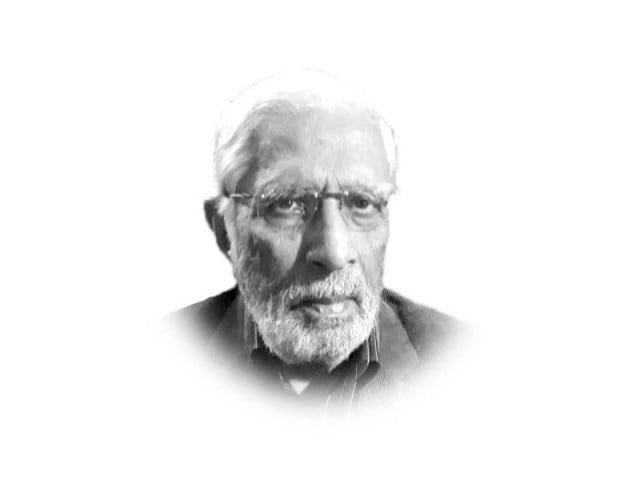Persisting with a failed economic model
One common feature of govts since 1977 was the IMF dictated economic model they all worked

Every successive government since the first of Benazir Bhutto had inherited a bankrupt government. In the case of Benazir’s first, the situation was so bad that the in-coming PM had to sign on the dotted lines of an IMF agreement finalised by the outgoing government of president Ghulam Ishaq Khan which had come into being the day the military ruler, General Ziaul Haq, died in an air crash.
The succeeding first Nawaz government passed on to the second Benazir government a country even more destitute which then bequeathed a country even more broke to the in-coming second Nawaz government.
The military government of General Musharraf which inherited a country in the red from the second Nawaz government passed on to the government of president Zardari a Pakistan in economic ICU. And Zardari’s government in turn passed on to the succeeding third Nawaz government an insolvent country which then went to the first elected government of Imran Khan with the economy in a direr state.
One common feature of the eight governments since 1977 plus the one in power currently was the IMF dictated economic model they all worked. The model is based on Washington Consensus drawing its inspiration from Milton Friedman’s philosophy of ‘free-for-all’ market economy.
Paradoxically, the PTI-led coalition government began exactly the way Atif Mian, one of the world’s leading economists of Pakistani origin, had in a newspaper column (published August 17, 2018), said was wrong: “Typically, the new government has ‘plugged the hole’ through IMF and kicked the can down the road for another five years which is certain to bring it face to face with the next near-death experience in due course of time.”
For things to be different this time, the author had advised the new government to respond differently, highlighting three elements that, he said, should be part of the government’s strategy to get out of the current doom-loop.
First, strengthen Pakistan’s financial and regulatory authorities. Appoint competent and reputable leadership and design governance rules to minimise political interference. For example, the SBP should be given legal and functional autonomy. The top leadership should be picked on merit and appointed for a duration preferably as long as the political cycle of five years.
An independent regulatory authority, perhaps within SBP, should be empowered to monitor Pakistan’s exposure to risks such as leverage, liquidity and exchange rate risks in the financial sector.
Second, shift Pakistan’s growth policy from the failed import-led strategies towards policies that focus on raising domestic productivity growth and exports. One of the most important lessons for students of economic growth is that a country’s long-term growth is almost exclusively a function of its domestic productivity growth. Simply put, a country cannot buy success from the outside, it has to be developed internally.
On this score, the PTI government seems to have failed miserably as it’s still trying to fund its growth with borrowed resources and simultaneously completely neglected human development.
The government needed to focus on factors that expand domestic productivity investing heavily in education so our labour force becomes more productive. He further advised the government to invest in science, technology and human capital infrastructure. Pointing to the great shortage of producers of human capital, e.g. scientists and academics who can produce the next generation of skilled professionals, Mian said, the government’s first order of business should be to do everything it can to attract top talent into Pakistan. This required changing Pakistan’s narrative and promoting a pluralistic society as, according to him, today the much sought-after global talent increasingly demands an open and free society.
Third, modernise the financial system to reduce the incidence of tax evasion and money laundering by moving the financial system towards a ‘cashless’ digital payment system that makes it easier to track and audit large financial transactions. The foreign exchange market should also be unified into a single market that integrates with the formal banking system. Here too, the performance of the PTI government has remained inadequate.
Published in The Express Tribune, September 12th, 2020.
Like Opinion & Editorial on Facebook, follow @ETOpEd on Twitter to receive all updates on all our daily pieces.















COMMENTS
Comments are moderated and generally will be posted if they are on-topic and not abusive.
For more information, please see our Comments FAQ